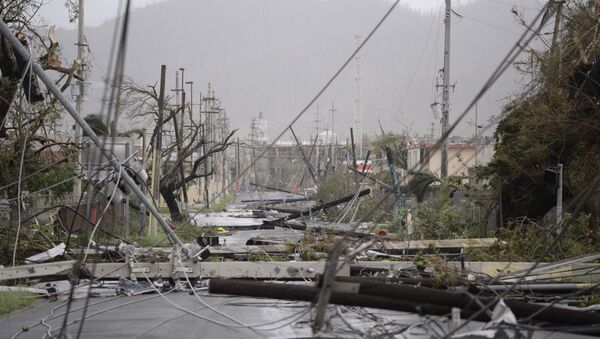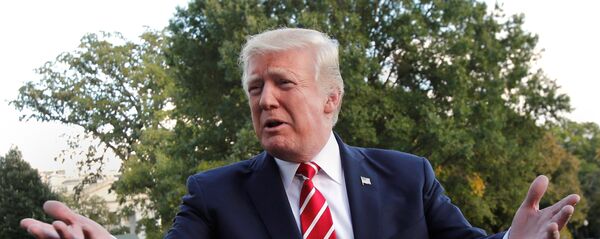According to activists like Richard Lopez and Ruth Beltran, the privatization of the power company marks the beginning of gentrification and privatization efforts in Puerto Rico under the guise of US reconstruction endeavors.
"You have to first understand the relationship between Puerto Rico and the US," Richard Lopez, an activist with the Puerto Rican Nationalist Party, told John Kiriakou and Brian Becker, hosts of Sputnik Radio's Loud & Clear.
"The nation of Puerto Rico is a corporate community [for the US]. Puerto Rico does not trade with any nation other than the US. The electricity industry spends $325 million a year to generate electricity for the Puerto Rican people. So, who is providing electricity to Puerto Rico? It's the US. So if Puerto Rico has problems, it's because the US has created these problems to add private companies to take resources away from Puerto Rican people," Lopez explained.
"The US is stripping every public industry in Puerto Rico to privatize it in an attempt to feed off the Puerto Rican people, the island's resources and its economy. The US wants Puerto Rican people to leave the island. How do you force migration? You create unemployment and you create devastation," Lopez added.
The island's existing power system is about 28 years older than the average US system, according to Rossello. When hurricanes Maria and Irma unleashed their wrath on Puerto Rico last September, the majority of the island was left without power for months. As of the end of last month, four months after the catastrophe, electricity had only been restored to 55 percent of the island.
"Frankly, with this authority we can't confront the risks inherent to living in an area of high vulnerability to catastrophic events like the two recent hurricanes," Rosselló said in the Monday statement.
"Facing this reality, I want to inform you of one of the initiatives with greatest impact for the construction of a new and modern Puerto Rico: the transformation of our electrical system."
"From where we sit, the government created the crisis with austerity politics," Fredyson Martinez, vice president of UTIER, the union representing PREPA line workers, told The Intercept in a Wednesday article. "When Maria hit, it essentially exposed the weaknesses of a utility [network] that had suffered from years of neglect. It was only later that I started to see that they [Rosselló's government and the US] have been working to spread the idea that privatization is the only option to solve Puerto Rico's problems. This isn't a casual thing. It has been prepared and thought out… They took advantage of the crisis."
Selling public assets is common for countries facing debt. The sale of the assets results in quick, much-needed cash for the state. However, the drawback is that services like water and electricity are provided by corporations whose best interests are not necessarily the general public's. While public firms have to provide services to people living in certain geographic areas, private firms are only required to provide profits to their shareholders, who often have different concerns than the public being served.
When Hurricane Katrina hit New Orleans in 2005, many black communities were forced to evacuate and many portions of the city like New Orleans East and Gentilly were eventually gentrified, according to the Housing Authority of New Orleans
The destruction in Puerto Rico could follow the same pattern: the driving out of poor residents, the privatization of land and the gentrification of neighborhoods. "We can expect the displacement of the people of Puerto Rico," Beltran, an organizer with Black Lives Matter Tampa, told Loud & Clear.
"We've seen this before, where a colonial power dominating the country takes zero responsibility for a natural disaster that struck the country. The US is going to suck the island dry out of all of its profits and resources, forcing people to evacuate," Beltran added.




